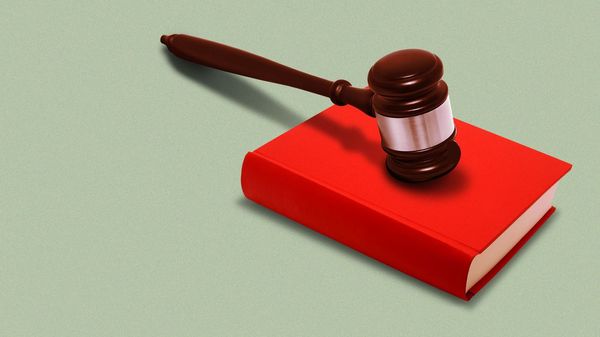
As the Manchester United hierarchy reflected on yet another defeat, there was scarcely a thought of blaming Erik ten Hag. That means they certainly won’t be making any “knee-jerk decisions” about his future. United are committed to the Dutch coach. The overriding feeling is that Ten Hag has faced an almost impossible number of injuries, to go with more off-field issues in a short period than almost any manager has ever faced.
The latter may not be a complete coincidence in the context of the overall future of the club. There is a sense that a decade of issues from the ownership post-Ferguson have started to finally come together, which has caused everything else to come apart. So much has gone full circle, right down to comparisons now being made between Ten Hag and Louis van Gaal. The Dutch great was one of many who warned them. It's still a hierarchy that knows how to spend the club's money, but doesn't know how to spend with real football insight. Investment has not been made in deeper football intelligence. A crumbling Old Trafford has become a visual metaphor of all that.
Now, to round it all off, it is hard not to think the uncertainty over the sale process has started to manifest on the pitch; inhibiting decisions; preventing true clarity.
Some within the club would even argue that the heavily criticised management of cases like Mason Greenwood comes down to how financial considerations are the main factor conditioning all decisions. So much has been seen in terms of financial assets with value.
It is known that the case affected Ten Hag’s planning. There have since been further disruptions. One £80m-plus forward in Antony was temporarily unavailable for selection due to accusations of domestic abuse, which he denies. Another £80m-plus forward in Jadon Sancho is not being used over a personality clash with the manager.
That latter situation leads into one of the most relevant questions, at least as regards whether the club can navigate their way out of yet another classic United crisis. That is if Ten Hag’s management is making the current situation worse.
The Independent has been told that the atmosphere inside the dressing room and among general staff is now “toxic”. Many previous employees speak in David Beckham’s new documentary, the premiere of which took place on the same night as that Champions League group match at home to Galatasaray. It was that exact fixture that saw Beckham score his first-ever goal for the club back in 1994, which was featured on the documentary to symbolise a player and a team on the up. It only sharpened the contrast to now. United figures will no doubt watch it forlornly, as they are reminded how that ferocious assurance has evaporated.
They are back in the pre-Ferguson days, but almost worse. Comparisons have similarly been made between Ten Hag’s start to the season and that which got Ron Atkinson sacked in 1986.
While it is wrong to say the Dutch coach has “lost the dressing room”, he is at a fraught point where any connection with the current team is in danger of being broken.
Erik Ten Hag walks off after Manchester United’s defeat to Galatasaray— (Action Images via Reuters)
This is where some players privately complain about how Ten Hag “isn’t exactly warm”. His response to setbacks is to get even more disciplinarian. There isn’t that nuance to the approach.
Plenty at United would say that is exactly what is required, and itself needs patience, since this is a dressing room that has seen off a series of managers. Accounts of “toxic” atmospheres long preceded Ten Hag.
It doesn’t help the Dutch coach that so many remnants of four previous managerial regimes remain. There is a fair argument that is a significant factor that has almost been understated in all of the discussion around United. Ten Hag could fairly compare it to Mikel Arteta’s circumstances. For all that Arsenal have spent, a proud argument made within the London club is that their greatest investment wasn’t any player purchase but in paying off the contracts of Mesut Ozil and Pierre-Emerick Aubameyang. Decisions like that have ensured everyone in the squad fully buys into what the manager wants. That is hugely important from a psychological perspective, as well as in fostering the kind of furnace-heat assurance Ferguson made such a force.
Erik ten Hag applauds the Manchester United fans following defeat to Galatasaray— (PA Wire)
Ten Hag doesn’t have anything close to that. He instead has players hanging around who he doesn’t want and who themselves know that. That saps the focus. Even the Sancho decision has played into this. While some players consider Ten Hag’s stance completely fair, the winger still has friends in the squad. They feel he has been treated too harshly, further eroding that focus.
The injuries have made all that worse. Those absences have been particularly ruinous at the back, which has made Andre Onana’s integration even more difficult. The new goalkeeper has played behind seven different starting backlines in 10 games, and the current one is probably the fourth choice. The benefits of Onana’s good footwork have barely been felt because the make-up of the team means he often has to go long. There's no one to collect. It hasn’t helped that the Cameroonian arrived relatively late after a protracted negotiation with Internazionale, when modern goalkeeping coaches would insist they are signings that need to be made from 1 June because of the deeper chemistry that is required. Onana's confidence has clearly been affected.
This is where there should be scrutiny beyond Ten Hag. United’s approach to transfers has long come under criticism. The squad has so many remnants of previous regimes hanging around because they have struggled to offload players for years.
Officials at other clubs have been privately dismissive of director of football John Murtough. Some have even questioned whether he would get such a lofty role elsewhere, and if the job is “too big for him”. It is felt he doesn’t have the contact base of some of his equivalents, not least people like Txiki Begiristain at Manchester City. As an example, Raphael Varane and Casemiro were big “obvious” signings.
It should be acknowledged both looked transformative last season but - in the words of one Bernabeu contact - “there’s a reason Real Madrid got rid of them”. United have arguably seen the other side of their advanced careers this season. That actually makes it all the more striking that they didn’t even try for Harry Kane in the summer, one senior player whose situation was very different. He outgrew his club. It was the sort of deal United would have just made happen in the past, perhaps with Declan Rice.
Mason Mount of Manchester United looks dejected after Mauro Icardi scores for Galatasaray— (Getty Images)
Club employees would defend Murtough, and insist he has improved how the role works. Rasmus Hojlund already looks an excellent signing, and of the forward-thinking type the club should be making. It is similarly possible that some of the questions elsewhere come from different interpretations of the job, albeit interpretations that influence how smoothly United work.
The position should really involve setting the entire football philosophy of the club. United’s interpretation has instead led to another manager-led approach, which has been especially visible in the transfer market.
While Pep Guardiola will give City’s recruitment team a profile of players he wants, which has meant some low-profile or relatively unrecognised purchases, Ten Hag has often insisted on specific names. It’s already been commented upon how so many of United’s signings are players the Dutch coach has previously worked with.
This is why so much again rests on whether Ten Hag now has what it takes, and why the club’s bigger managerial decisions are so crucial, arguably more than any other club.
It’s also where the comparisons with Van Gaal come in. A comment regularly made is that, like his predecessor, Ten Hag is doggedly insistent on players who understand his system over quality. That is theoretically a positive but the reality is often that it brings other gaps in how the team plays.
Mason Mount was clearly a signing made for his tactical understanding. His range of positions offers a real variety. There’s even a commercial benefit, given his value as a high-profile England international. It’s still the case, however, that players who like Mount don’t seem to have an obvious role in the team. One question that’s been repeated is why exactly United bought him.
There are then the disciplinary echoes of Van Gaal. Where the carrot might be needed, such as in circumstances as testing as this, Ten Hag just keeps going for the stick. Some sources have been amusingly acerbic about.
“He’s just Dutch.”
That has nevertheless led another argument, that has lingered from Ten Hag’s initial appointment. Dutch coaches generally haven’t excelled in the Premier League. An argument has been that they are used to specific club structures, and are too dogmatic.
All of that does come amid a wider discussion whether the game is starting to really move into a tactical era beyond the Dutch-Spanish pressing-possession paradigm. Where there was once a sense that approach represented an “end of history” in terms of tactics, we are now into a future of baiting the press and similar innovations. Even Guardiola has adapted.
Manchester United’s Bruno Fernandes and Antony look dejected after the final whistle against Galatasaray— (PA)
For Ten Hag's part, he has argued his ideal is an approach executed at such an intense pace it makes his sides unplayable. Visions of that have been seen at United, especially in the build-up to the League Cup victory, and that thrilling win over Barcelona.
It has just barely been seen since, without a convincing display in recent memory. That is almost what is most alarming of all.
The League Cup was supposed to be the launch of a new era, but currently just looks like a club that thought it had arrived again, only to be left there. United didn’t build on it. So much has corroded since.
It is why Ten Hag needs his foundation rebuilt. He needs to get through these injuries, so he is only playing teams he wants. On the other side of that, he has now made a point of bringing through the younger players such as Hannibal Mejbri and Kobbie Mainoo. That will bring more buy-in. That may bring a better longer-term outlook.
Some figures around the club would again point to Arteta here, arguing that his Arsenal were mid-table for two years. The process wasn’t close to complete. His squad still didn’t get it. They get it now.
Ten Hag will eventually get some reprieve. Some of the off-field issues will calm.
It similarly looks likely the ownership situation will settle, even if it is not as many fans want. Joel and Avram Glazer still aren’t ready to sell, which will prevent the unanimity required from the siblings unless a mega offer is made. It is why Sir Jim Ratcliffe’s potential minority offer may be a strategically clever compromise. It gives the Glazers necessary investment and gives the INEOS boss a way in.
It seems quite neat but won’t necessarily go like that. Sources close to the process say any minority buyer would want “a path to a majority”.
Avram and Joel may not be ready to give up that. It means, for now, uncertainty reigns - not least over results.







